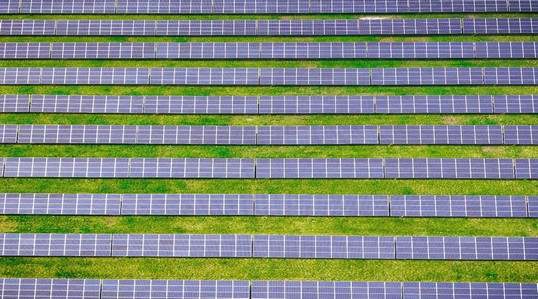What Is The Definition Of Sustainable Consumption And Production?
The three global challenges of climate change, species extinction, environmental damage, and waste necessitate implementing sustainable consumption and production practices worldwide, including in the UAE.
The need of the hour is a significant shift in our society and economy, where we transition from our current models of consumption and production to non-polluting, low-carbon, and resource-efficient models. The sustainable consumption and production model prioritizes human health and everyone's ability to thrive.
The members of our society must work together at the international, national, state, and municipal levels to switch to sustainable consumption and production. Before you do that, you may want to know, "what is the definition of sustainable consumption and production?" Answering this question is vital to understanding how sustainable consumption and production work and what essential practices are involved.
In this article, we will help you understand what sustainable consumption and production entail and how they can help preserve the future of our planet.
How the World Currently Consumes and Produces
To answer, "what is the definition of sustainable consumption and production?" It is vital to understand how the process currently works.
Current consumption and production practices depend on the extraction, processing, use, and disposal of natural resources in large quantities, which significantly contributes to environmental degradation.
Although we have had many advisories cautioning against it, the amount of materials consumed and used to produce goods continues to increase worldwide; the proportion at which resources are extracted worldwide is surpassing both the growth in population and economy. It means that we need to use materials more effectively while using more of them. By 2060, resource extraction globally will rise by 110 percent if current patterns persist.
Why is this a problem? The global crises we currently face—climate change, biodiversity loss, and pollution—are fueled by today's untenable consumption and production practices.
It threatens the health and prosperity of all people and jeopardizes our access to the materials and resources that form the foundation of our society, economies, and countries, as well as our ability to support our families, cities, and way of life.
They are several reasons individuals, businesses, and countries continue to indulge in unsustainable consumption and production practices. The following are some of them:
The "externalization" of the costs associated with environmental harm, such as the exhaustion of natural resources and environmental effects like pollution, global warming, and species extinction, all of which are brought on by the processes of creating and consuming products and services. Being unsustainable is "cheaper" because the cost of these "outside" problems is not accounted for in the cost of consuming or producing goods and services but is covered by the general public and the government.
Models of the economy prioritize a country's production and consumption of goods and services. It entails growing exponentially both the number of natural resources utilized and the environmental effects of the current unsustainable consumption and production methods.
The linear "take, make, use, discard" strategy uses "untouched" resources to create goods with limited lifespans that are frequently engineered to have "built-in expiration" or to be replaced by fresh items rather than fixed. There needs to be more motivation for producers to build things sustainably when there is no producer accountability, which implies that the obligation for waste disposal after a product's lifetime falls to the person, group, or state.
Sustainable production and consumption is a systematic shift that resolves these issues.

As it focuses on systematic change that aims to minimize the impact of production processes and consumption patterns on the ecosystem, sustainable production and consumption can go a long way in helping to preserve our planet. The following are three ways in which it helps to accomplish this.
Improves Economic Growth While Lowering Environmental Degradation
Sustainable production and consumption aim to maximize net social benefits from economic activity by lowering resource usage, erosion, and pollution over the entire life cycle while raising the quality of life. More goods and services are provided while having "less" of a consequence on resource usage, environmental damage, waste, and toxicity.
Ensures Efficient Use of Resources and Environmental Sustainability
With sustainable consumption and production patterns, we can improve resource efficiency and ecological sustainability throughout the entire consumption and production lifecycle, such as resource exploitation, the creation of raw material, marketing and distribution, usage and re-usage of goods and services, and waste disposal.
Provides Opportunities for Economic Progression
With sustainable production and consumption, there are several opportunities for economies to quickly switch to a sustainable society, including developing new markets, good-paying green jobs, and improved welfare-producing resource management. Most industrialized countries' wasteful, polluting, and ultimately expensive stages of development can be "leapfrogged" in favor of more resource-efficient, ecologically responsible, and viable technologies.
Final Word
It is easy to understand why we need to transition from our current models of consumption and production to more sustainable models. Sustainable production and consumption can expedite the transition to low-carbon and ecologically sustainable economies while considerably reducing poverty. To achieve this through SCP, coordination across various stakeholders and industries in the UAE is required.
We at RECAPP contribute to sustainable production and consumption by making it easier to recycle materials like plastic. Along with reducing the amount of plastic trash disposed of in landfills, it also helps manage resources more effectively and decreases the environmental impact of manufacturing, processing, and production. You can join our revolution and contribute to a better world.
